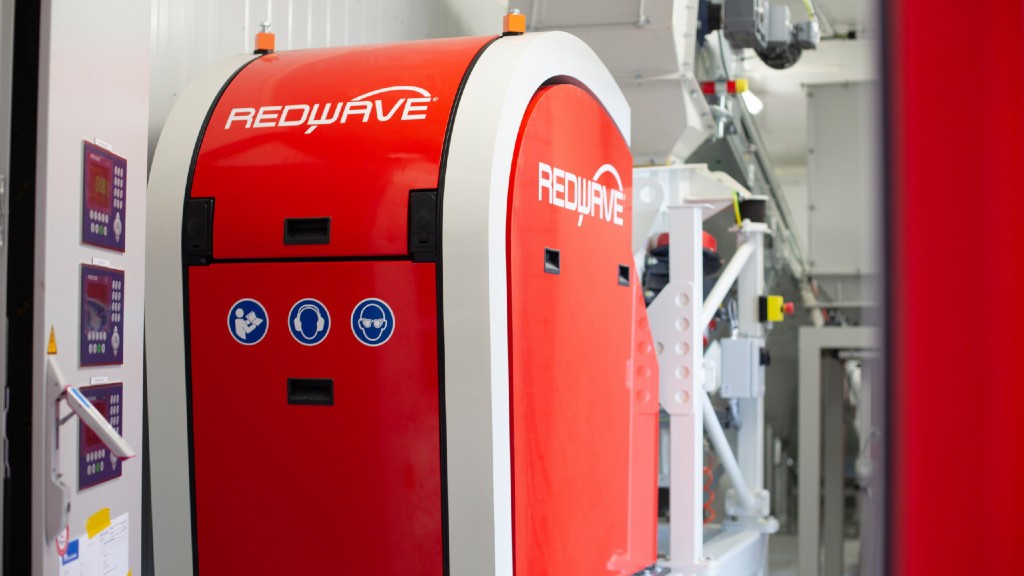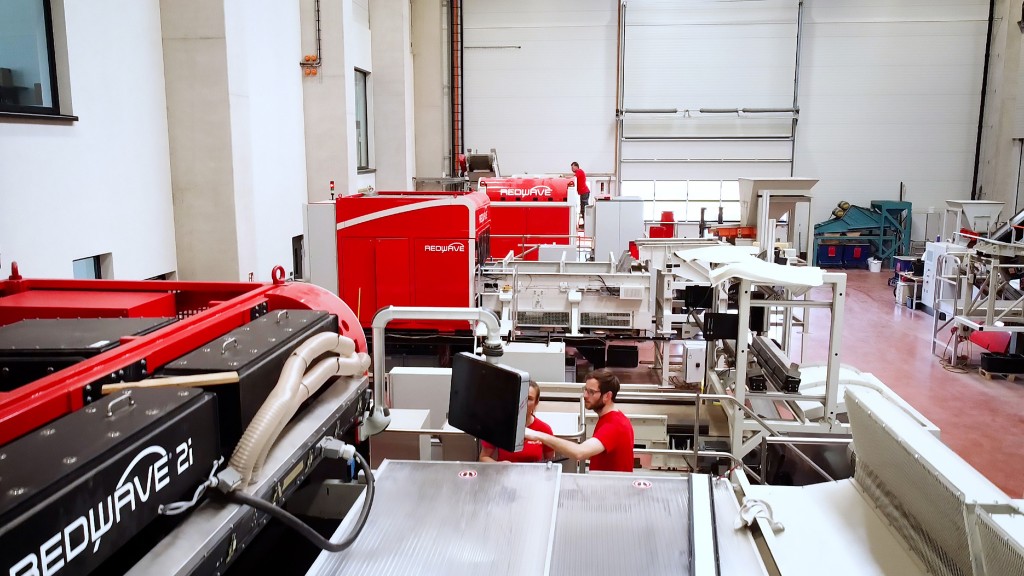Norske Skog commissions REDWAVE material analyzer inside a shipping container to increase machine portability

REDWAVE has supplied the waste-to-energy processing plant for Norske Skog. Residues from recyclable material sorting are burned as a substitute fuel in the new power plant. The group invested a total of 72 million euros in the power plant, which is intended to cover two-thirds of the site's heat demand and one-third of the electrical energy demand. REDWAVE supported Norske Skog in this project in the planning, delivery, and commissioning of the entire waste-to-energy processing plant, including electrical measurement, control, and regulation technology.
Refuse-derived fuels are fuels that are mainly obtained from industrial, bulky, and commercial waste or sorting residues from recyclable material sorting plants. Waste-to-energy plants help to ensure that less waste ends up in landfills and that renewable energy can be used in a resource-saving manner. The new power plant is of enormous importance because the use of regional substitute fuels and residues will reduce the consumption of natural gas by up to 75 percent, according to Norske Skog company spokesman Gert Pfleger.
The substitute fuel material is processed in the new plant before combustion to obtain high quality and purity. This allows for the ideal and efficient use of the energy content contained in the waste. The fully automatic analysis of the processed substitute fuel, using the new REDWAVE Qi analysis and control system, ensures the required material quality. Based on the material surface, the sensor-supported REDWAVE Qi analysis system outputs the calorific values or information about the material moisture. This data output takes place online via the REDWAVE mate software. The material composition data also includes details of the chlorine levels of the substitute fuel as well as quality statements about the input material purchased. A comparative measurement with, for example, values from combustion or chlorine analysis in the laboratory is made possible.
REDWAVE Qi can, as with Norske Skog, be independent but is commissioned as either mobile or stationary units and can be integrated into an existing sorting system. The machine is built and commissioned inside a mobile container and can be moved from locations around a facility or from state to state between plants. Soon-to-be-processed material is examined, controlled, and evaluated via a REDWAVE Qi analyzer to determine the quality of the cullet before actual glass production commences. By testing the material composition, the REDWAVE Qi can provide information regarding the quality of the input material. This step allows for the discovery of unwanted impurities which can later create weaknesses in the final glass product.



